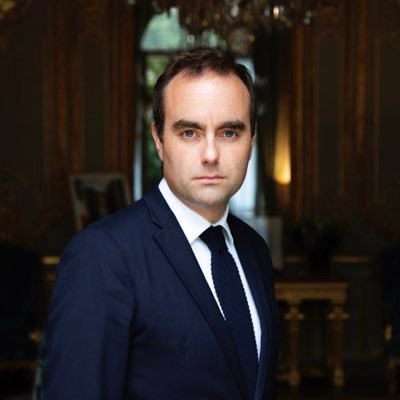France’s influence in Africa remains strong, and that is why recent coups featured attempts of manipulation aimed at undermining its clout, according to French Defence Minister, Sebastien Lecornu.
Lecornu said this in an interview with French daily newspaper, Var Matin.“As for losing influence – I disagree with that. In reality, France is very influential in Africa.
“That is why it is in the public eye. And that is why it becomes the object of attempts at manipulation,” he said.
The French minister called for “equanimity,” and said that the coups in Mali and Burkina Faso had also undermined collective counter-terrorism efforts and that the growth of terrorism in Africa threatened Europe as well.
“It is a question of not only influence, but also collective security.
“We cannot fail to see that a new hotbed of terrorism is a stone throw from the Mediterranean.
“I appeal for equanimity. The real victims of what is happening today are the citizens of the affected countries,” Lecornu added.
On Monday, a group of 94 French senators of different political views signed an open letter to President Emmanuel Macron, saying that the country’s policy on the African continent had failed.
Signatories included Senate head, Roger Karoutchi, Republican lead, Bruno Retailleau, and Christian Cambon, the Chairman, Senate Committee on Foreign Affairs and Defence.
The July 26 coup in Niger unleashed a new wave of popular anti-French sentiment in the West African country in particular, and the sub-region by extension.
French-backed President Mohamed Bazoum was overthrown by his own guards, while the new military-led authorities terminated all defence agreements with France, which had exercised colonial rule over Niger for more than 60 years, citing the possibility of a French intervention.
Macron vowed to support any sanctions against the mutineers and called for Bazoum’s release.The France-led counter-terrorism mission Barkhane was founded in 2014 to assist the Malian military in their fight against terrorism in the Sahel.
The mission involved forces of the G5 Sahel countries, including Niger, Burkina Faso, Chad, Mali, and Mauritania.
In the spring of 2022, the Malian government announced that it was terminating defence agreements with Paris and called on the country to withdraw troops involved in the Barkhane and other missions.
In November 2022, Macron announced the official end of Operation Barkhane.
